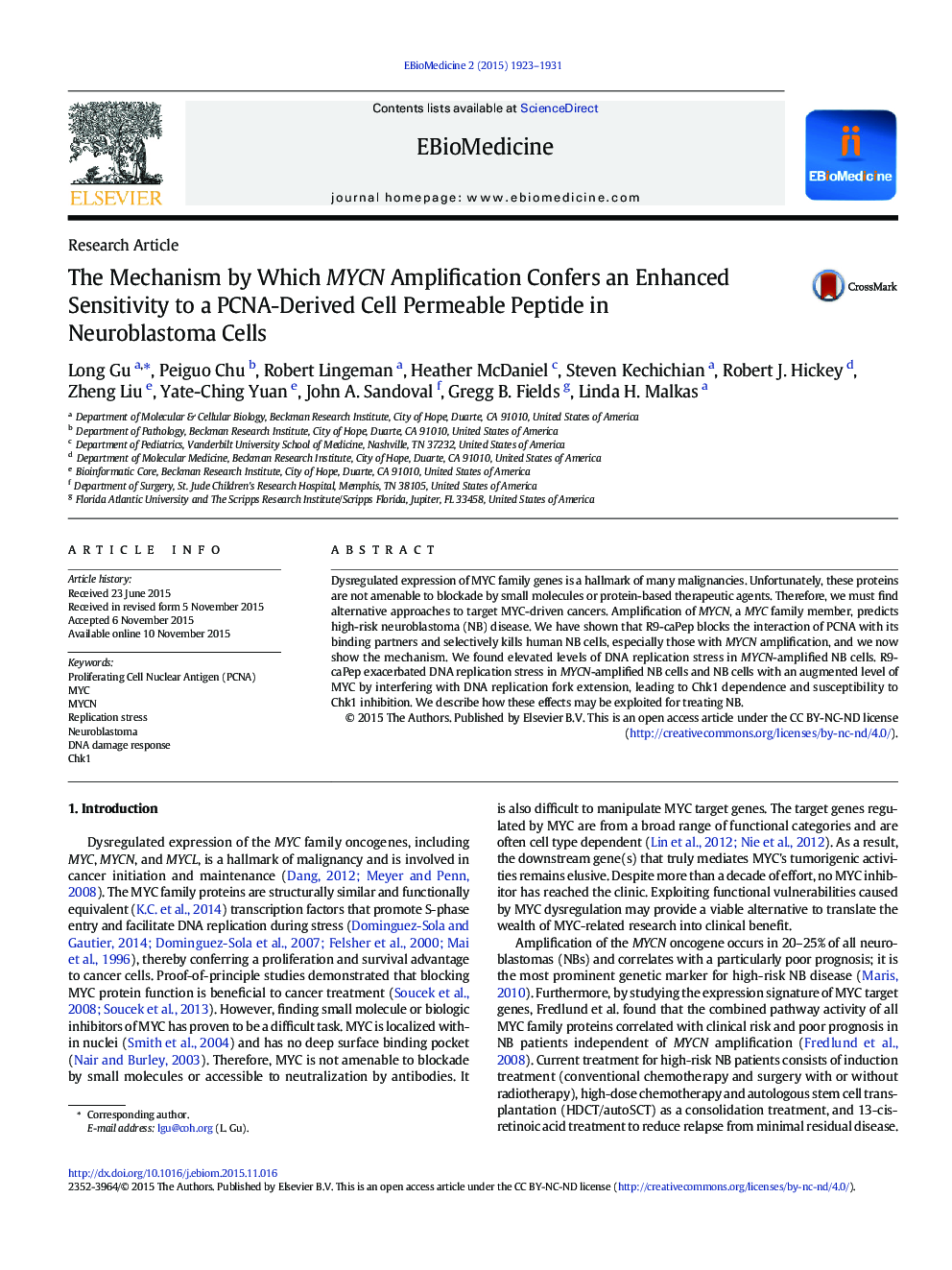| کد مقاله | کد نشریه | سال انتشار | مقاله انگلیسی | نسخه تمام متن |
|---|---|---|---|---|
| 2121071 | 1085768 | 2015 | 9 صفحه PDF | دانلود رایگان |

• MYCN-amplified neuroblastoma (NB) cells contain a high level of ATR/Chk1 signaling and DNA replication stress
• R9-caPep, a PCNA-derived cell permeable peptide interferes with DNA replication fork extension and causes Chk1 dependence
• R9-caPep works synergistically with Chk1 inhibitors to kill NB cells that have MYCN amplification or enhanced MYC expressionEnhanced expression of MYC proteins, including MYC, MYCN, and MYCL, is a hallmark of many cancers. These functionally redundant oncoproteins aren't amenable to blockade by traditional therapeutics. MYCN amplification is a prominent genetic marker for high-risk neuroblastoma. We discovered the presence of chronic DNA replication stress and the dependence on ATR/Chk1-mediated DNA damage response as crucial vulnerabilities in MYCN-amplified neuroblastoma cells. Induction of replication stress by PCNA-derived R9-caPep works synergistically with Chk1 inhibition to kill MYCN-amplified cells. Our study provides proof-of-concept evidence that targeting a well defined region of PCNA may lead to an effective therapy for treating MYC-driven cancers.
Dysregulated expression of MYC family genes is a hallmark of many malignancies. Unfortunately, these proteins are not amenable to blockade by small molecules or protein-based therapeutic agents. Therefore, we must find alternative approaches to target MYC-driven cancers. Amplification of MYCN, a MYC family member, predicts high-risk neuroblastoma (NB) disease. We have shown that R9-caPep blocks the interaction of PCNA with its binding partners and selectively kills human NB cells, especially those with MYCN amplification, and we now show the mechanism. We found elevated levels of DNA replication stress in MYCN-amplified NB cells. R9-caPep exacerbated DNA replication stress in MYCN-amplified NB cells and NB cells with an augmented level of MYC by interfering with DNA replication fork extension, leading to Chk1 dependence and susceptibility to Chk1 inhibition. We describe how these effects may be exploited for treating NB.
Journal: EBioMedicine - Volume 2, Issue 12, December 2015, Pages 1923–1931